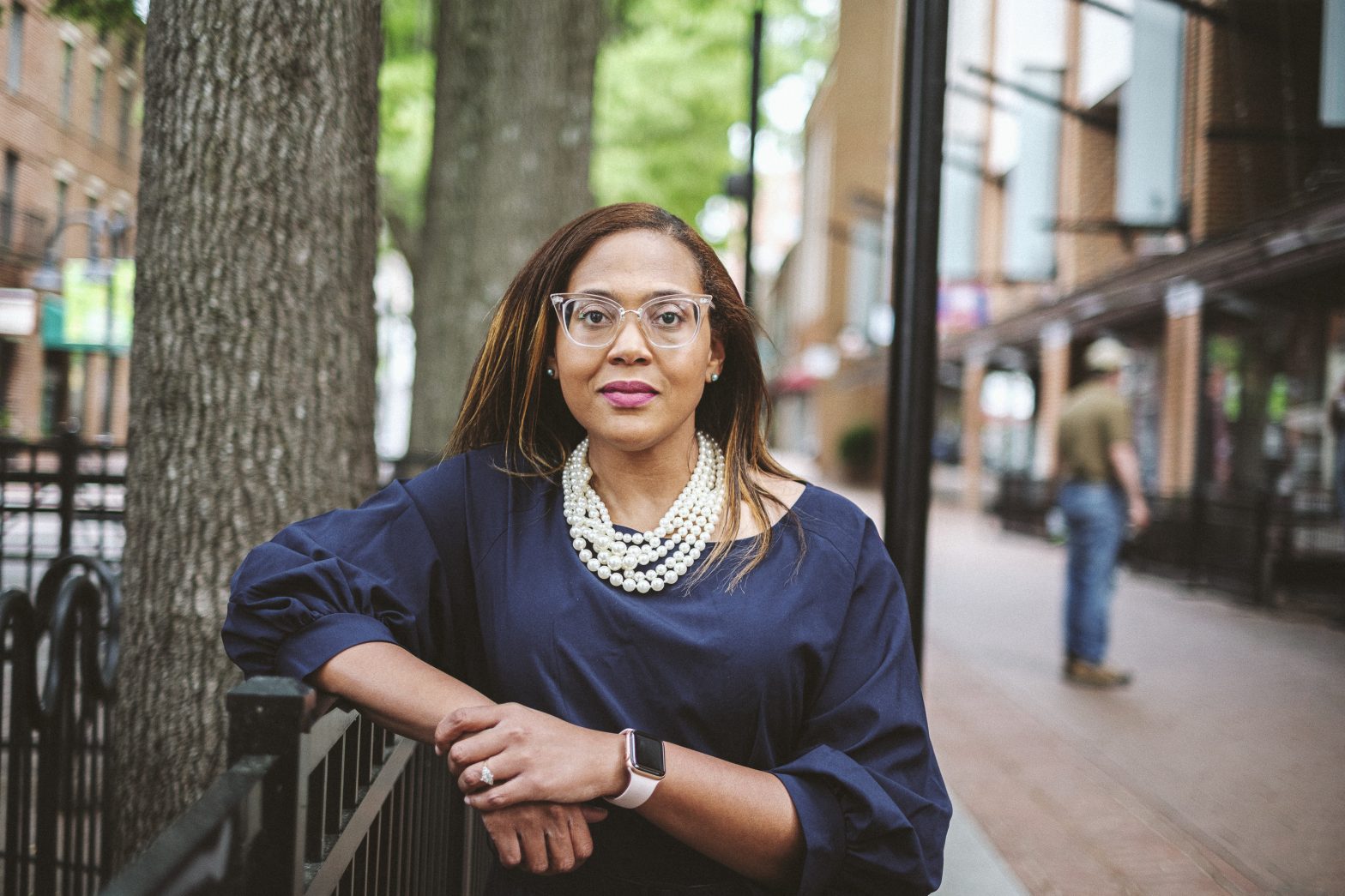For Ashley Reynolds Marshall, the past year has been a whirlwind. A few weeks after she became Charlottesville’s first deputy city manager for racial equity, diversity, and inclusion last May, the city removed its infamous Lee and Jackson monuments, and the Sacajawea, Lewis, and Clark statue. When former city manager Chip Boyles resigned in October—shortly after abruptly firing CPD chief RaShall Brackney—Marshall and Deputy City Manager for Operations Sam Sanders jointly filled the city manager role. And when previously appointed interim city manager Marc Woolley backed out one day before his November start date, Marshall and Sanders continued carrying out “enhanced duties” until City Council finally appointed interim City Manager Michael Rogers in January.
Despite these challenges, Marshall’s first year on the job has been a “really amazing learning experience,” she says. “It’s been a lot, but in the most positive way possible.”
Since her hiring last year, Marshall has had a full plate—she oversees the city’s departments of human services, social services, human resources, human rights, IT, and communications, as well as the police department, Police Civilian Oversight Board, and Home to Hope program. Soon, she will also be in charge of the city’s new office of equity and inclusion, which will house Home to Hope, ADA services, and the Downtown Job Center.
In addition to addressing specific needs and concerns within these departments, Marshall has been working to dismantle systemic racism within the city government, specifically by offering critical anti-racism training to employees “so that we do not send people out who are doing harm,” she explains. This summer, 100 city employees—including Mayor Lloyd Snook and Councilor Brian Pinkston—will participate in a Racial Equity Institute session, which explains systemic racism in an accessible manner using data and stories. Marshall hopes to hold another session later this year, and open it up to community members.
“What I’ve really been excited about is figuring out ways to make equity not a check box or a task—but how to really weave it into the fabric of the organization,” she says. “My goal is that eventually it will not be something that we think about…[but] that we naturally consider in all of our decision making.”
For this fall, Marshall’s planned another workshop hosted by Equity in the Center. It’s called Awake to Woke to Work, and encourages participants to confront their own biases and make equity a part of their daily life.
“I didn’t have to push anybody to sign up for this. It was one email,” she says. “That, to me, says that this organization is ready to do better and be the best that it can be.”
Before coming to Charlottesville, Marshall worked with multiple nonprofits in her hometown of Roanoke, and served as a magistrate. She received a B.A. in psychology from Hollins University, an M.P.A. from Virginia Tech, and a J.D from William & Mary Law School. She is currently pursuing a Ph.D. at the Center for Public Administration and Policy at Virginia Tech.
During those several months of performing city manager duties, support from community members and leaders like Shelby Edwards of the Public Housing Association of Residents and Harold Folley of The People’s Coalition was crucial. “Having individuals who really wanted the city to be the best it can be, despite the circumstances, really helped me to make sure I was providing the support to the departments in the way they needed—and the way the community needed,” she adds.
Putting an end to gun violence has been among Marshall’s top community priorities. She is proud of City Council’s financial support of the B.U.C.K. Squad and Peace in the Streets, both of which intervene in conflicts before they turn into deadly shootings. Under her leadership, the city has also increased its acknowledgment of gun violence—this month, the front of City Hall was lit up orange for Gun Violence Awareness Day, and City Council declared June 3 as Gun Violence Awareness Day in Charlottesville.
While the city has lagged on implementing the Marcus Alert system, which will allow behavioral health experts, instead of law enforcement, to respond to crises related to mental health, substance use, and developmental disabilities, Marshall is currently working with the Charlottesville-UVA-Albemarle County Emergency Communications Center to create a 9-8-8 number that will connect anyone who calls or texts with the National Suicide Prevention Lifeline. That effort should be complete by next month, in accordance with a national mandate.
“While we do not want to excuse all gun violence to mental health concerns, we do know that some of the gun violence does stem from [it],” she says. “Our mental health care system [needs] more access.”
Marshall is optimistic about other efforts underway in the city, including the creation of emergency housing for people experiencing homelessness and the hiring of a new police chief. Of the latter, Marshall says she has encouraged community involvement in the hiring process and hopes the next chief will “really understand they’re coming to a unique community where they have the opportunity to be innovative—[and] not engage in business as usual,” she says.
